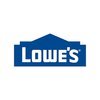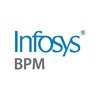Senior Accountant
300+ Senior Accountant Interview Questions and Answers
Asked in Aman Traders

Q. Tell me about your experience with self-tax.
I have extensive experience in tax accounting and compliance, with a strong understanding of tax laws and regulations.
I have successfully prepared and filed tax returns for individuals and businesses.
I have conducted tax research and analysis to ensure compliance with changing tax laws.
I have provided tax planning and advisory services to clients, helping them minimize tax liabilities and maximize deductions.
I have experience in handling tax audits and resolving tax-related i...read more
Asked in Gennext Facility Services

Q. What is the journal entry when a director pays expenses on behalf of the company?
When a director pays expenses on behalf of the company, an entry is made to record the transaction.
The director's payment is recorded as a liability for the company.
The entry includes debiting the appropriate expense account and crediting the accounts payable account.
Once the company reimburses the director, the accounts payable account is debited and the cash account is credited.
The entry should be recorded in the company's accounting software or ledger for accurate record k...read more
Senior Accountant Interview Questions and Answers for Freshers
Asked in M Kama Raju and Associates

Q. Are you familiar with Tax Deducted at Source (TDS), Tax Collected at Source (TCS), and the process of filing returns for these taxes?
Yes, I am familiar with TDS, TCS, and the process of filing returns for these taxes.
I have experience in calculating and deducting TDS from various payments such as salaries, rent, and professional fees.
I am knowledgeable about the rates of TDS applicable for different types of payments and the deadlines for depositing the deducted amount with the government.
I understand the concept of TCS and how it is collected by sellers at the time of sale of certain goods.
I am proficient...read more

Asked in PECO Projects

Q. If you are auditing a company's books of accounts and you suspect an issue after the audit is finalized, what steps would you take?
If discrepancies are found post-audit, further investigation and reporting are essential to ensure accuracy and compliance.
Review supporting documentation: Re-examine invoices, receipts, and contracts to identify any inconsistencies.
Consult with team members: Discuss findings with colleagues to gather different perspectives and insights.
Consider a follow-up audit: If significant issues are found, propose a follow-up audit to address the discrepancies.
Document findings: Prepar...read more
Asked in Abhi Enterprises

Q. What is I -Les? What is E-way Bill? What is GST R1, R2, R3? How to manage account data? What else do you do in the account? Why do they make bills and what is it for them?
I -Les is a term used in accounting to refer to the income statement.
I -Les stands for Income - Less Expenses.
It is a financial statement that shows a company's revenues, expenses, and net income or loss for a specific period.
It helps in evaluating the profitability and financial performance of a business.
Example: I -Les for the year 2020 shows a net income of $100,000.

Asked in Metriqe Solutions

Q. What are prepaid expenses? Give some examples.
Prepaid expenses are payments made in advance for goods or services that will be received in the future.
Prepaid expenses are recorded as assets on the balance sheet until the goods or services are received.
Examples of prepaid expenses include prepaid rent, prepaid insurance, and prepaid subscriptions.
Prepaid expenses are typically amortized over the period in which the goods or services are received.
Prepaid expenses can also be referred to as deferred expenses.
Senior Accountant Jobs




Asked in Ambuja Cements

Q. If the dealer price is ₹430 per bag of Ambuja Plain, what will be the retailer price?
The retailer price cannot be determined with just the dealer price of Ambuja plain.
The retailer price depends on various factors such as transportation cost, taxes, profit margin, etc.
The dealer price is the price at which the manufacturer sells the product to the dealer.
The retailer price is the price at which the dealer sells the product to the end consumer.
Without additional information, it is impossible to determine the retailer price.
Asked in Oshana Regional Council

Q. Suppose your budget is depleting and the Chief Regional is urgently travelling to Windhoek for a workshop, how would you solve the problem?
I would prioritize the Chief Regional's travel expenses and look for cost-saving measures to ensure the workshop can still be attended.
Review the budget to identify areas where costs can be reduced or reallocated
Consider alternative travel options such as video conferencing or carpooling
Negotiate with vendors for discounts or payment extensions
Seek approval for emergency funds if necessary
Share interview questions and help millions of jobseekers 🌟


Asked in K.K Enterprises

Q. Tell me about journal entries in accounting.
Journal entries are recordings of transactions in the accounting system, showing debits and credits for each transaction.
Journal entries are used to record financial transactions in the accounting system.
Each journal entry includes a debit entry and a credit entry, with the total debits equaling the total credits.
Journal entries follow the double-entry accounting system, where every transaction affects at least two accounts.
For example, a journal entry to record a sale would ...read more

Asked in Metriqe Solutions

Q. What is Accrual? Then where it will come?
Accrual is a method of accounting where revenues and expenses are recognized when earned or incurred, regardless of when payment is received or made.
Accrual accounting recognizes revenue when it is earned, not when payment is received
Expenses are recognized when they are incurred, not when payment is made
Accruals are recorded as adjusting entries at the end of an accounting period
Examples of accruals include salaries owed to employees, interest owed on loans, and revenue earn...read more

Asked in Premier Irrigation Adritec

Q. How do you ensure the accuracy and compliance of your work with accounting standards such as IFRS or GAAP?
To ensure accuracy and compliance, I follow rigorous processes aligned with IFRS and GAAP standards in my accounting work.
Regular Training: I participate in ongoing education and training sessions to stay updated on the latest changes in IFRS and GAAP standards.
Detailed Review: I conduct thorough reviews of financial statements and reports, cross-referencing them with accounting standards to ensure compliance.
Use of Accounting Software: I utilize advanced accounting software ...read more
Asked in Madras Steels & Tubes

Q. What actions should be taken if the GST report is not ready for filing by the due date, knowing that a fine will be charged after the deadline?
Take immediate corrective actions to minimize penalties and ensure compliance with GST filing requirements.
Assess the reason for the delay: Identify if it was due to missing documents, software issues, or other factors.
Communicate with stakeholders: Inform management and relevant departments about the delay and its implications.
Prepare the report as soon as possible: Prioritize the completion of the GST report to minimize the delay.
Consider filing an extension: If applicable,...read more
Asked in M Kama Raju and Associates

Q. What are the various income heads outlined by the income tax rules?
Various income heads outlined by income tax rules include salary, house property, business or profession, capital gains, and other sources.
Salary income includes wages, bonuses, commissions, and allowances.
House property income includes rental income from properties owned by the taxpayer.
Business or profession income includes profits from business activities or professional services rendered.
Capital gains income includes gains from the sale of capital assets like stocks, real...read more

Asked in QX Global Group

Q. What is partial exemption, Vat schemes, Share premium reserve used for,issue of Loss on debentures entry.
Partial exemption, VAT schemes, share premium reserve, and issue of loss on debentures entry are all related to accounting practices.
Partial exemption refers to the situation where a business is not able to reclaim all of the VAT it incurs on its purchases.
VAT schemes are special schemes designed to simplify VAT accounting for businesses, such as the flat rate scheme or cash accounting scheme.
Share premium reserve is a reserve created when a company issues shares at a premium...read more

Asked in Ambuja Cements

Q. If you have six customers, and two are dealers, how would you determine the price per bag?
The question is unclear and lacks necessary information to provide a valid answer.
The question needs clarification on what is being sold and what the dealer's discount is.
The number of bags and their price also need to be provided.
Without this information, it is impossible to calculate the price per bag.

Asked in Russell Tobin

Q. Is the management obligated to care for a workman beyond his working hours?
No, it is not obligatory for the management to take care of a workman beyond his working hours.
The management's responsibility is limited to the working hours of the employee.
However, some companies may offer additional benefits or perks to their employees.
It is important to check the company's policies and employment contract for details.
If the workman is required to work overtime, the management must compensate accordingly.
The management should also ensure a safe working en...read more

Asked in Premier Irrigation Adritec

Q. Can you describe a time when you identified a significant error or discrepancy in financial reports? How did you handle it, and what was the outcome?
Identified a significant discrepancy in financial reports, leading to corrective actions and improved reporting processes.
Discovered a $50,000 discrepancy in quarterly financial reports during a routine review.
Investigated the source, tracing it back to a data entry error in the accounts payable department.
Collaborated with the team to correct the error and implement a double-check system for future entries.
Presented findings to management, emphasizing the importance of accur...read more

Asked in Premier Irrigation Adritec

Q. How do you ensure compliance with changing tax regulations and accounting standards in your day-to-day work?
I stay updated on tax regulations and accounting standards through continuous education and proactive communication.
Regularly attend webinars and workshops on tax law changes and accounting standards.
Subscribe to industry newsletters and publications for the latest updates.
Utilize accounting software that is regularly updated to reflect current regulations.
Engage with professional networks and forums to share insights and best practices.
Conduct periodic reviews of internal pr...read more
Asked in ADVOCATE TAX CONSULTANTING FIRM

Q. Which section of the Income Tax Act, 1961 allows standard deduction, and what is the deductible amount for the assessment year 2024-2025?
Standard deduction under Income Tax Act, 1961 is specified in Section 16 and varies for the assessment year 2025-2026.
Section 16 of the Income Tax Act, 1961 allows for standard deduction.
For the assessment year 2025-2026, the standard deduction is ₹50,000 for salaried and pensioned individuals.
This deduction is applicable to income from salary and pension, reducing taxable income.
For example, if a salaried individual earns ₹10,00,000, the taxable income after standard deducti...read more
Asked in Madras Steels & Tubes

Q. How would you manage the critical situation when goods need to be supplied to the customer during a lorry strike?
I would explore alternative transport options, communicate with stakeholders, and ensure timely delivery despite the lorry strike.
Assess alternative transportation methods, such as hiring local courier services or using rail transport.
Communicate proactively with customers to manage expectations and provide updates on delivery timelines.
Collaborate with suppliers to expedite the dispatch of goods from their end to minimize delays.
Consider using a temporary storage facility cl...read more
Asked in Aarem Tradex

Q. What is the process for reconciling accounts, and how do you make adjustment entries for disputes, errors, or differences?
Reconciling accounts involves comparing records to identify discrepancies and making necessary adjustments.
1. Gather all relevant financial statements and records for the accounts being reconciled.
2. Compare the internal records with external statements (e.g., bank statements) to identify discrepancies.
3. Investigate any differences by reviewing transaction details and supporting documentation.
4. Make adjustment entries for errors, such as correcting misposted transactions or...read more

Asked in SmartAgro

Q. What is the process for closing accounts at the end of the year?
The process for closing accounts at the end of the year involves several steps to ensure accuracy and compliance.
Review all transactions and ensure they are accurately recorded
Adjust any necessary journal entries for accruals, prepayments, and depreciation
Prepare financial statements including income statement, balance sheet, and cash flow statement
Close revenue and expense accounts to retained earnings
Perform reconciliation of accounts to ensure accuracy
Generate year-end rep...read more

Asked in Apex Group

Q. What is high water mark, hurdle rare, journal entry for prepaid expenses, journal entry for accrual
High water mark and hurdle rate are terms used in finance, while journal entries for prepaid expenses and accruals are common accounting practices.
High water mark is the highest value that an investment fund has reached, used to calculate performance fees.
Hurdle rate is the minimum rate of return that a fund manager must achieve before earning performance fees.
Journal entry for prepaid expenses involves debiting Prepaid Expense and crediting Cash or Accounts Payable.
Journal e...read more

Asked in CBNITS

Q. What is the method for calculating Tax Deducted at Source (TDS)?
TDS is calculated based on the income slab rates and is deducted at the time of payment.
TDS rates vary based on the type of payment and income slab of the recipient.
TDS is deducted by the payer at the time of making payment to the payee.
The payer is required to deposit the deducted TDS to the government.
TDS certificates are issued to the payee as proof of tax deduction.
TDS can be calculated using online TDS calculators or manually based on the rates specified by the governmen...read more
Asked in Hartech Plastics

Q. How many years of experience do you have in sales tax and excise?
I have 5 years of experience in sales tax & excise.
I have worked with various clients to ensure compliance with sales tax regulations.
I have experience in preparing and filing sales tax returns.
I have also worked with excise taxes, such as those related to alcohol and tobacco products.
I am familiar with state and local tax laws and regulations.
I have experience in researching and resolving tax issues.
Overall, I am confident in my ability to handle sales tax and excise matters...read more

Asked in quatrro business support services

Q. If a creditor is unreconciled at the last day of the tax audit report, what will you do?
I would investigate the discrepancy by reviewing creditor statements, invoices, and payment records to identify and rectify any errors.
Review creditor statements to identify any missing or incorrect entries
Check invoices and payment records for accuracy and completeness
Reconcile creditor balances with general ledger accounts to ensure accuracy
Communicate with creditors to resolve any discrepancies or outstanding issues
Document all findings and actions taken for audit purposes
Asked in Red Rose Home Industries

Q. GST Filing Dates GSTR1 Filine Before 11th of Every Month and GSTR3B Filing Before 20th of Every Month
GST filing dates for GSTR1 and GSTR3B are before 11th and 20th of every month respectively.
GSTR1 filing deadline is before the 11th of every month
GSTR3B filing deadline is before the 20th of every month
It is important to adhere to these deadlines to avoid penalties
Asked in Shreya Agro Foods

Q. What are the key differences between accounts payable and accounts receivable?
Accounts payable represents money owed by a company, while accounts receivable represents money owed to a company.
Accounts Payable (AP) refers to the liabilities a company owes to suppliers for goods and services received. Example: unpaid invoices from vendors.
Accounts Receivable (AR) refers to the assets a company has from customers who owe money for goods or services provided. Example: invoices sent to clients.
AP is recorded as a liability on the balance sheet, while AR is ...read more

Asked in SmartAgro

Q. What is the process for finalizing financial books?
The process for finalizing financial books involves reconciling accounts, adjusting entries, preparing financial statements, and closing the books.
Reconcile all accounts to ensure accuracy
Make any necessary adjusting entries to correct errors or omissions
Prepare financial statements such as the income statement, balance sheet, and cash flow statement
Close the books by transferring revenue and expense account balances to retained earnings
Asked in Gennext Facility Services

Q. SALES PURCHASE GST ENTRY , WHY YOU DO THE BRS
BRS is done to reconcile the bank statement with the company's records.
BRS stands for Bank Reconciliation Statement
It helps to identify any discrepancies between the bank statement and the company's records
It ensures that all transactions are accurately recorded and no errors or fraud have occurred
It helps to maintain the accuracy and integrity of financial records
Sales purchase GST entry is related to recording transactions in the books of accounts
Interview Experiences of Popular Companies






Calculate your in-hand salary
Confused about how your in-hand salary is calculated? Enter your annual salary (CTC) and get your in-hand salary


Reviews
Interviews
Salaries
Users










